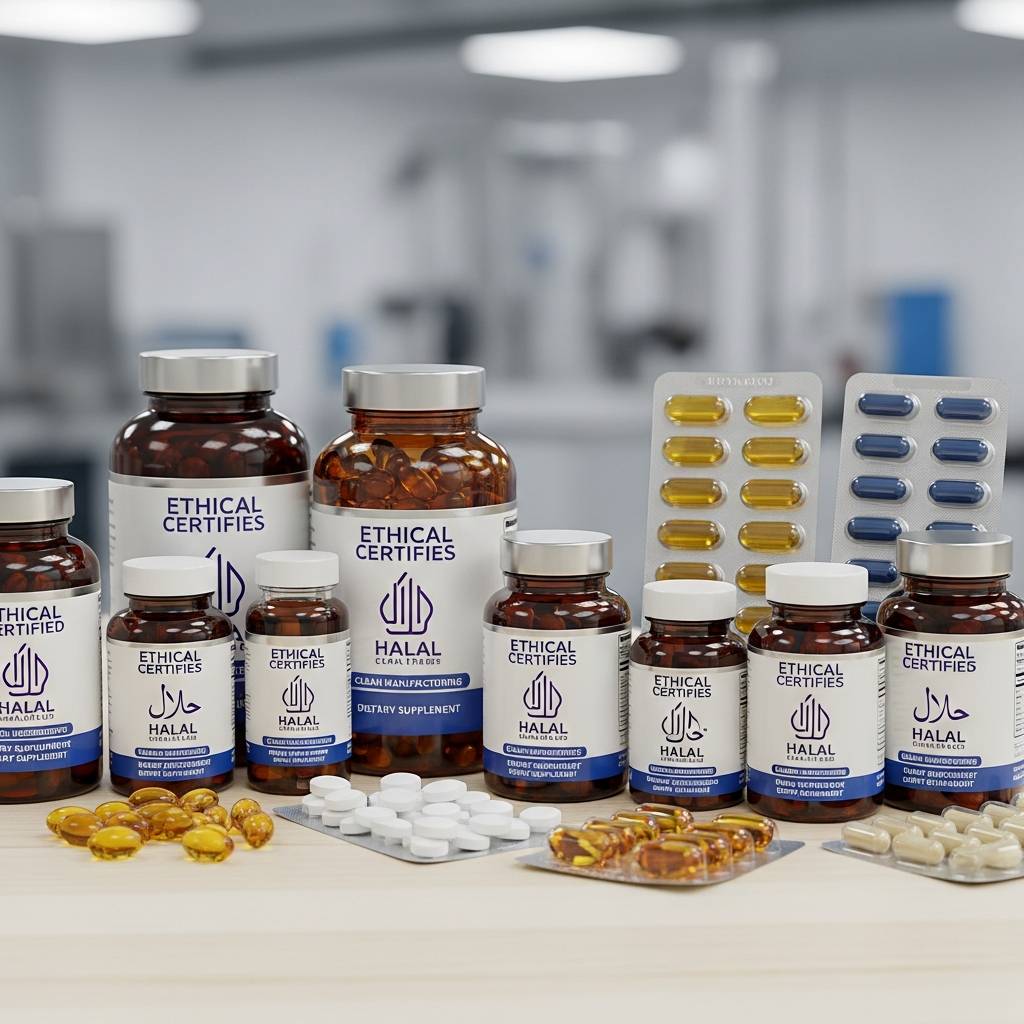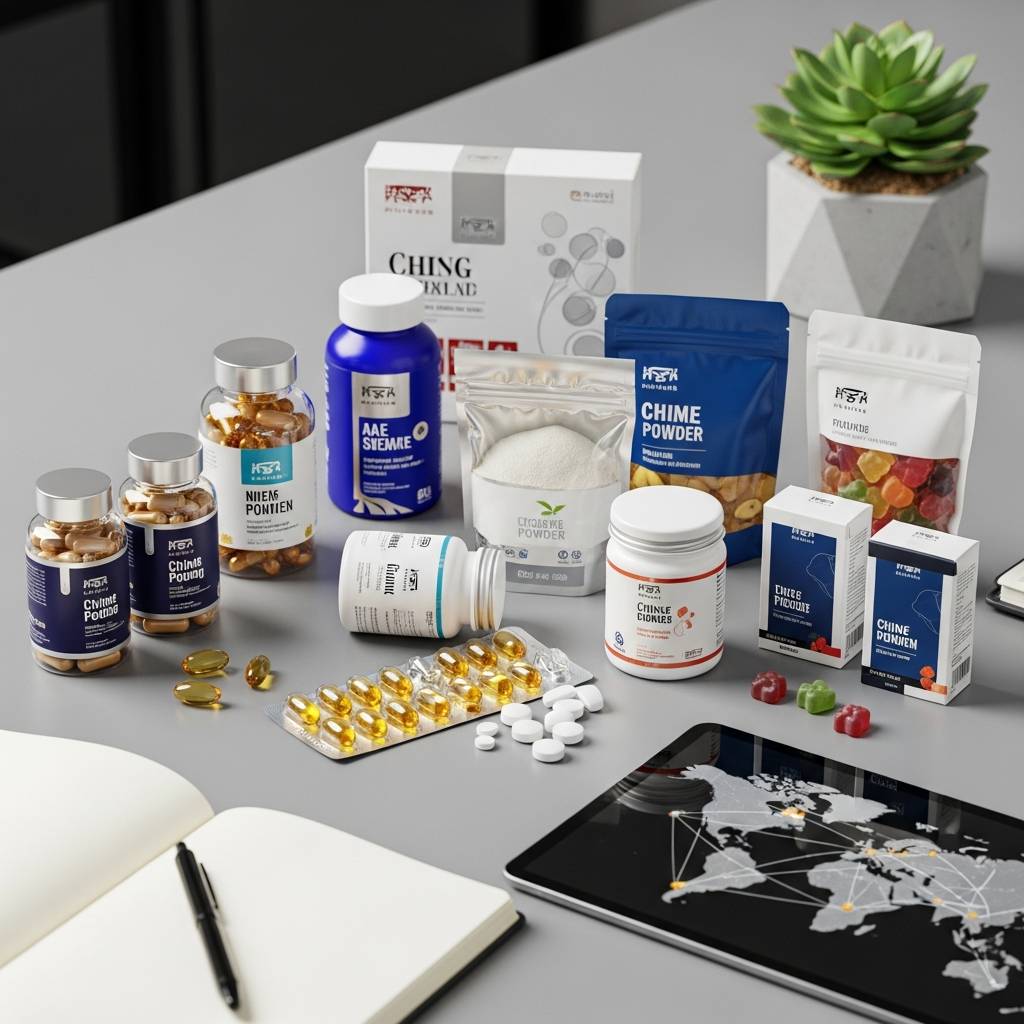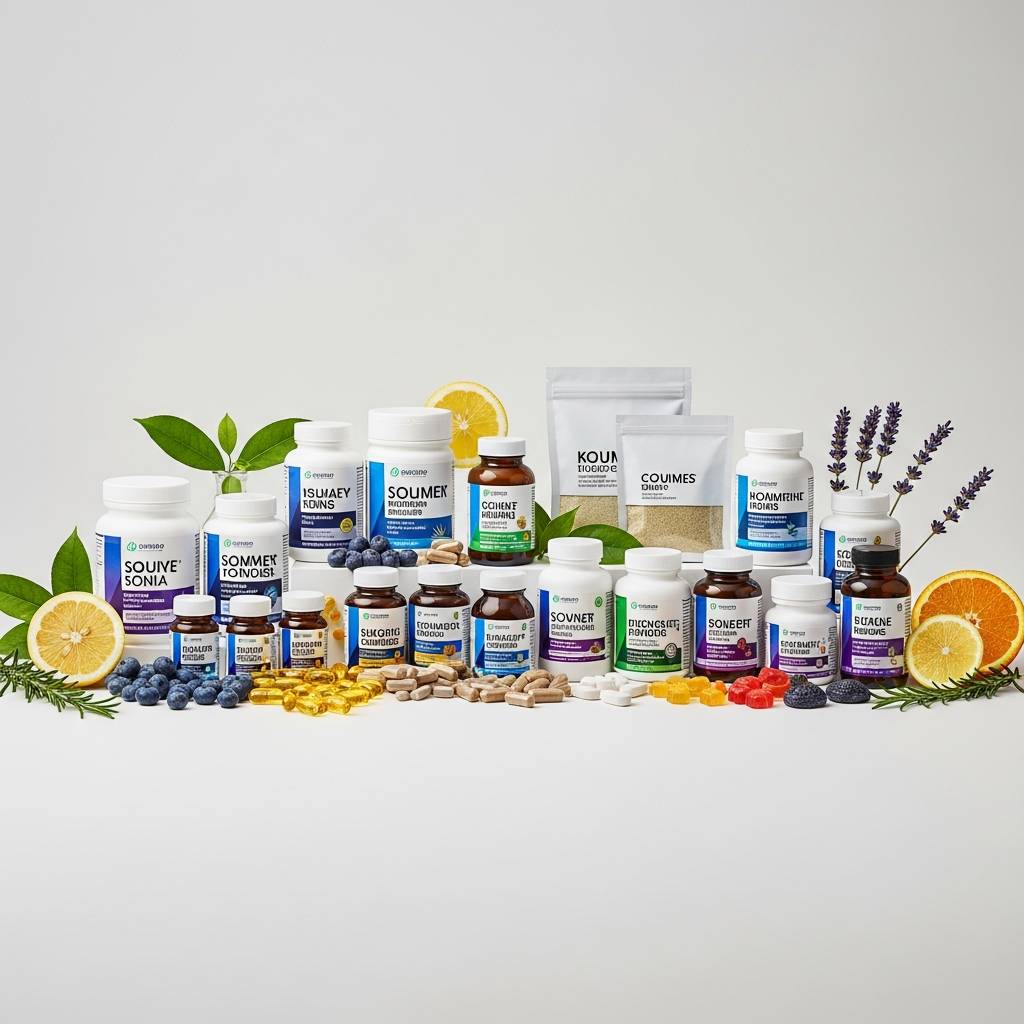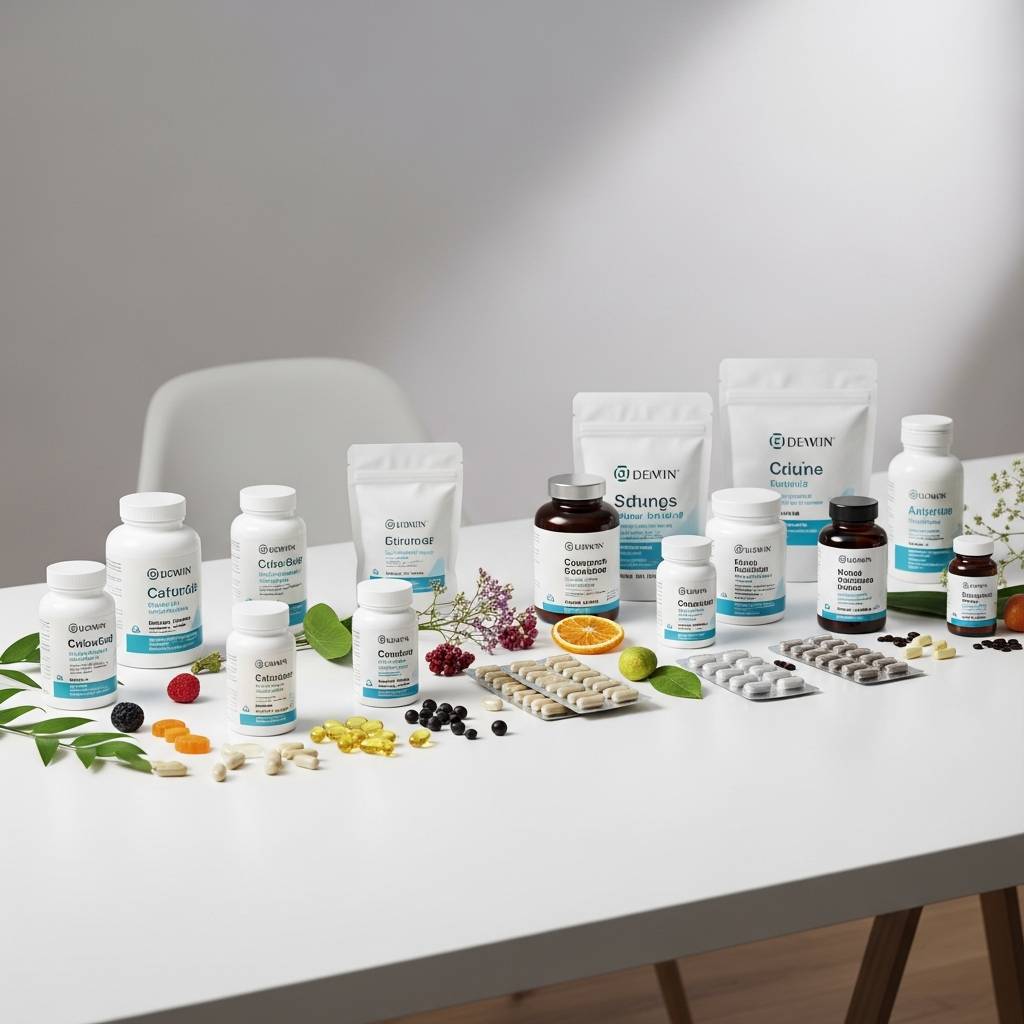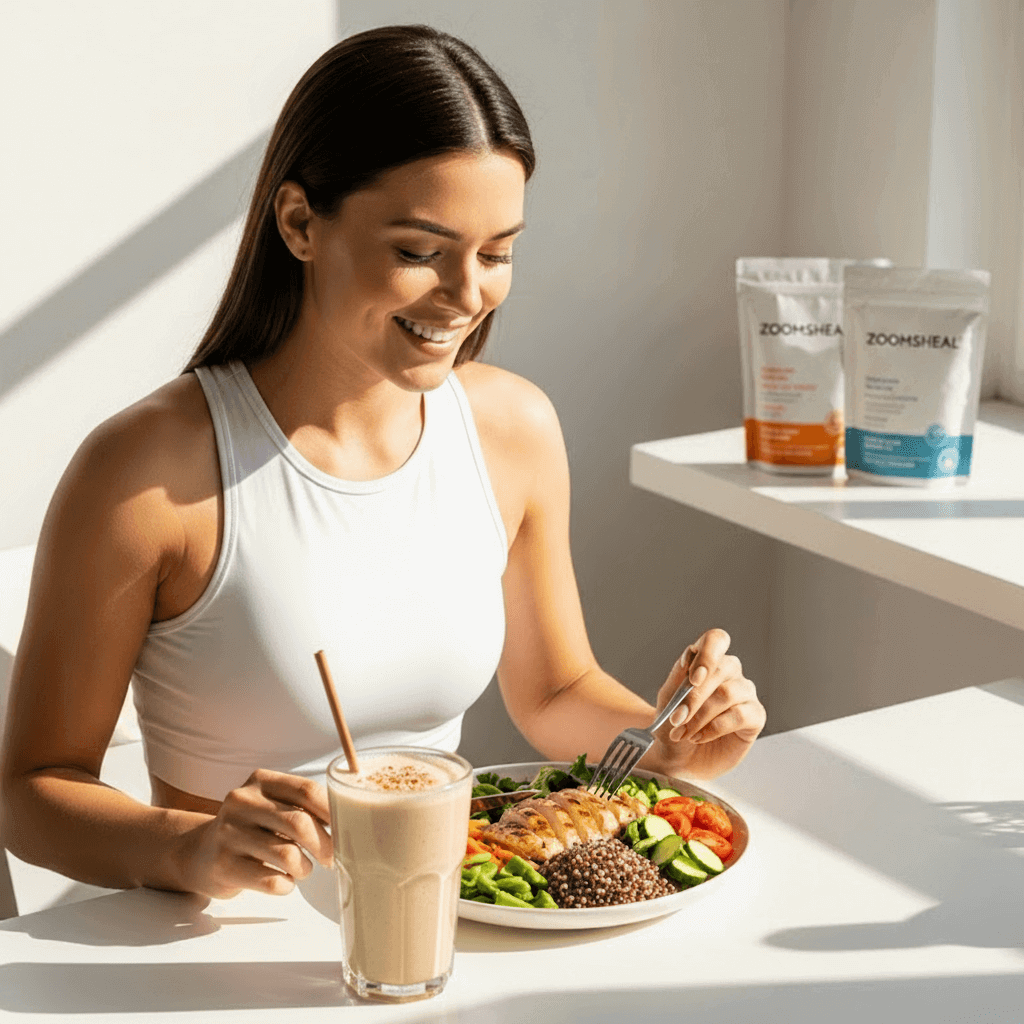Entering the dietary supplement industry requires more than simply having a formula or a brand concept; it demands a thorough understanding of the global supply chain and reliable manufacturing partners. Supplement manufacturers play a critical role in ensuring product quality, safety, and regulatory compliance. Selecting the right manufacturer is not only essential for producing effective products but also for maintaining consumer trust and brand reputation.
The global dietary supplement market has experienced significant growth over the past decade, driven by increasing consumer awareness of health and wellness, aging populations, and a surge in preventive healthcare practices. According to industry reports, the market is projected to exceed $300 billion globally by 2026, with nutraceuticals and herbal supplements making up a substantial share. This growth has created opportunities for startups and established brands alike, but it also raises the stakes: sourcing from unreliable manufacturers can result in contaminated products, regulatory penalties, or brand-damaging recalls.
The supplement industry is characterized by a wide diversity of product types and formats, ranging from powders, capsules, and tablets to gummies, liquids, and functional beverages. Each product type requires specialized production equipment, precise formulation knowledge, and strict adherence to quality standards. This complexity makes it crucial for companies to engage with manufacturers who not only understand the technical requirements but also maintain robust quality management systems.
In addition to technical competence, manufacturers must comply with regional regulations, which vary widely across markets. For instance, the U.S. Food and Drug Administration (FDA) mandates Good Manufacturing Practices (GMP) for dietary supplements, while the European Food Safety Authority (EFSA) enforces different standards for labeling, claims, and ingredient safety. A manufacturer’s ability to navigate these regulatory frameworks directly impacts a company’s ability to launch products smoothly and legally in target markets.
This article aims to provide a comprehensive guide on how to find reliable supplement manufacturers, covering every step from defining product requirements, researching and verifying potential partners, conducting audits, negotiating contracts, to building long-term partnerships. By understanding these processes in detail, businesses can mitigate risks, ensure product quality, and build a foundation for sustainable growth in the competitive supplement industry.
Define Your Product Requirements
Before starting the search for a supplement manufacturer, it is crucial to have a clear understanding of your product requirements. This step lays the foundation for all subsequent decisions, including manufacturer selection, quality control, regulatory compliance, and cost management. Without well-defined specifications, miscommunication and production errors are more likely, potentially leading to costly delays or unsafe products.
a) Identify the Product Type
Supplements come in a wide variety of formats, and each type requires specialized manufacturing processes. Common formats include:
-
Powders: Often used for protein, greens, or functional blends. Manufacturing involves mixing, drying, and packaging, with careful attention to particle size and solubility.
-
Capsules and Tablets: Require precise dosing, consistent excipient use, and quality control to ensure uniformity and bioavailability.
-
Softgels: Typically used for oil-based ingredients such as omega-3 fatty acids or fat-soluble vitamins, requiring specialized encapsulation technology.
-
Gummies: Popular among children and adults for palatability, but challenging to produce due to texture, stability, and ingredient compatibility.
-
Liquids and Beverages: Require expertise in solubility, shelf-life stability, and microbial safety.
Selecting the right product type depends on your target market, consumer preferences, and ingredient characteristics. For instance, probiotics are sensitive to moisture and temperature, making capsules or powders more suitable than gummies in some cases.
b) Specify Ingredients and Formulation
A clear ingredient list is vital for communicating your needs to manufacturers. Consider:
-
Active Ingredients: Vitamins, minerals, herbal extracts, probiotics, or specialty compounds.
-
Dosage Levels: Determine the appropriate dosage per serving based on scientific research, regulatory limits, and target consumer benefits.
-
Excipients and Fillers: Necessary for tablets or capsules, but must be compatible with active ingredients and safe for consumption.
-
Functional Properties: Taste, solubility, stability, and bioavailability can all affect manufacturing decisions and product performance.
It’s also beneficial to reference trends and market research. For example, collagen peptides, adaptogenic herbs, or plant-based protein are increasingly popular, which may influence formulation choices.
c) Determine Quality and Certification Requirements
Quality standards ensure that the final product is safe, effective, and compliant with local and international regulations. Common certifications and standards to consider include:
-
Good Manufacturing Practices (GMP): Required by many regulatory bodies to ensure consistent production and quality.
-
ISO Certifications: Such as ISO 9001 for quality management systems.
-
Third-Party Certifications: NSF, USP, or organic certifications can enhance credibility and marketability.
-
Allergen Control and Testing: Especially critical for products containing common allergens like soy, gluten, or dairy.
Documenting these quality expectations upfront ensures that manufacturers can meet your standards and provides a benchmark for audits and testing.
d) Consider Production Scale and Packaging
Understanding your initial order volume and future growth is essential. Factors to define include:
-
Batch Size: Align production runs with anticipated demand to minimize waste and storage costs.
-
Packaging Type: Bottles, pouches, sachets, or custom containers affect manufacturing processes and shipping logistics.
-
Labeling Requirements: Include ingredient declaration, dosage instructions, storage conditions, and regulatory-compliant claims.
Well-defined requirements in this phase make it easier to communicate with manufacturers, obtain accurate quotes, and reduce the risk of errors during production.
By thoroughly defining your product requirements, you not only facilitate a smoother manufacturer selection process but also establish a solid foundation for quality assurance, regulatory compliance, and consumer trust.
Research Potential Manufacturers
Once your product requirements are clearly defined, the next step is to identify and evaluate potential supplement manufacturers. This phase is critical because even a well-designed product can fail if the manufacturing partner cannot meet quality, compliance, and logistical expectations. A thorough research process increases the likelihood of selecting a reliable and capable partner.
a) Utilize Online Directories and B2B Platforms
Online platforms are often the first point of contact when searching for manufacturers. Sites like Alibaba, Made-in-China, and Global Sources provide access to thousands of suppliers and basic company information. However, caution is necessary:
-
Look for verified suppliers with documented certifications and a proven export history.
-
Examine product listings for detail and accuracy. Generic or vague descriptions may indicate inexperience.
-
Review customer feedback and ratings, but keep in mind that some reviews may be incentivized or biased.
While online platforms are convenient, they should be considered a starting point rather than the sole source of evaluation.
b) Attend Industry Trade Shows
Trade shows offer the unique advantage of face-to-face interaction with manufacturers and allow you to observe their operations and product range firsthand. Key global events include:
-
Vitafoods Europe – Showcases nutraceutical and functional ingredient suppliers.
-
SupplySide West (USA) – Focused on dietary supplements, functional foods, and beverage ingredients.
-
Natural Products Expo (USA & Europe) – Features a wide variety of organic and health-focused product manufacturers.
At trade shows, you can request product samples, ask about quality control processes, and directly assess the manufacturer’s professionalism and communication capabilities.
c) Leverage Industry Networks and Referrals
Referrals from peers, consultants, or professional associations are often the most reliable sources for finding trustworthy manufacturers. Benefits include:
-
Proven track record: Recommendations are typically based on actual performance and reliability.
-
Insider knowledge: Referrers may provide insights into the manufacturer’s strengths, weaknesses, and capacity limitations.
-
Reduced risk: Personal connections can reduce uncertainty compared to cold outreach.
Joining industry associations or online forums can also provide access to vetted contacts and supplier databases.
d) Check Regulatory Filings and Certifications
Manufacturers that adhere to international standards demonstrate a higher level of credibility. Methods to verify compliance include:
-
GMP Registration: In the U.S., check the FDA’s inspections database for registered dietary supplement facilities.
-
ISO Certifications: Verify through official ISO records or third-party validation services.
-
Third-Party Testing Partnerships: Manufacturers that collaborate with independent labs for batch testing often maintain higher quality standards.
This verification ensures that the manufacturer is capable of producing safe, legally compliant products suitable for your target market.
e) Create a Shortlist
After gathering data from directories, trade shows, networks, and regulatory checks, create a shortlist of 5–10 manufacturers. Include information such as:
-
Company location and years of operation
-
Production capabilities and specialized expertise
-
Certifications and regulatory compliance
-
Past client references or case studies
-
Initial pricing and MOQ information
A well-prepared shortlist provides a manageable pool for deeper evaluation, including audits, sample testing, and contract negotiation.
By conducting thorough research at this stage, you reduce the risk of engaging with unreliable suppliers and lay the groundwork for a productive, long-term partnership.
Verify Manufacturer Credentials
After creating a shortlist of potential supplement manufacturers, it is essential to verify their credentials. This step ensures that your chosen partner can consistently produce high-quality products, adhere to regulations, and minimize risks associated with contamination, recalls, or legal non-compliance.
a) Confirm Business Licenses and Registration
Start by verifying the manufacturer’s legal status in their operating country. A legitimate manufacturer should have:
-
Official business registration with the government
-
Tax identification numbers
-
Export licenses, if shipping internationally
Checking these details reduces the risk of working with illegitimate or shell companies, which can lead to financial loss or regulatory issues. In some countries, online government databases allow quick verification of business credentials.
b) Evaluate Certifications and Quality Standards
Certifications demonstrate that a manufacturer adheres to recognized quality standards and regulatory frameworks. Common certifications include:
-
Good Manufacturing Practices (GMP): Ensures consistency, safety, and cleanliness in production.
-
ISO 9001 or ISO 22000: Confirms that the manufacturer has robust quality management systems.
-
NSF or USP Certifications: Provide third-party validation of product quality, safety, and ingredient accuracy.
-
Organic or Allergen-Free Certifications: Important if your brand emphasizes natural or allergen-safe supplements.
Request copies of certifications and verify them through official channels to ensure authenticity.
c) Assess Experience and Client Portfolio
Manufacturers with experience producing supplements similar to your product type are more likely to meet your requirements efficiently. Key evaluation points:
-
Years in Operation: Longer-established companies often have more mature processes and quality systems.
-
Past Clients and Brands: Case studies or references from existing clients indicate reliability and performance.
-
Specialized Expertise: Some manufacturers excel in specific formats, such as gummies, softgels, or probiotics, which can impact product quality and scalability.
Analyzing their portfolio helps you identify manufacturers with the right expertise for your specific formulation and market goals.
d) Evaluate Production Capacity
Ensure the manufacturer can handle both your initial orders and potential growth. Consider:
-
Batch Size Limitations: Some facilities may only produce large volumes, which may not align with your startup needs.
-
Flexibility for Custom Orders: Check if the manufacturer can adjust formulations or packaging for special editions or limited releases.
-
Scalability: The ability to scale production without compromising quality is crucial for long-term business success.
Understanding production capabilities early prevents future bottlenecks and ensures your supply chain can meet demand.
e) Review Compliance History
A manufacturer’s track record with regulators and clients provides insight into their reliability:
-
Regulatory Inspections: Check for past FDA or other authority inspections and whether there were warnings or violations.
-
Product Recalls: Frequent recalls may indicate quality or process issues.
-
Client Complaints: Reviews or testimonials can reveal recurring problems or inefficiencies.
This information allows you to make informed decisions, avoiding suppliers with poor compliance history that could jeopardize your brand.
By rigorously verifying manufacturer credentials, companies reduce risks related to product safety, regulatory violations, and supply chain disruptions. It ensures that any subsequent investment in audits, sampling, and contracts is spent wisely on a capable and trustworthy partner.
Conduct Factory Audits
Factory audits are a critical step in evaluating supplement manufacturers, providing firsthand insight into production practices, quality control systems, and operational reliability. Unlike documents or certifications, audits allow you to observe processes, facilities, and staff behavior, helping identify potential risks before entering into a long-term partnership.
a) Plan the Audit
Before visiting the facility, create a clear audit plan that outlines objectives, areas to inspect, and specific questions to ask. Consider:
-
Scope of Audit: Focus on production, quality control, storage, and safety practices.
-
Personnel: Identify key staff to meet, including production managers, quality assurance teams, and compliance officers.
-
Documentation: Prepare a checklist for reviewing batch records, Certificates of Analysis (COAs), and Standard Operating Procedures (SOPs).
Having a structured plan ensures that the audit is comprehensive and efficient.
b) Inspect Cleanliness and Hygiene
A clean, organized factory reflects a manufacturer’s commitment to quality and safety:
-
Evaluate the production floor, storage areas, and packaging zones for cleanliness and proper organization.
-
Observe employee hygiene practices, such as handwashing, use of gloves, hairnets, and protective clothing.
-
Check waste management systems and pest control measures, which are critical for preventing contamination.
These observations help gauge whether the facility maintains a hygienic environment consistent with GMP standards.
c) Review Quality Control Procedures
Quality control is the backbone of safe and effective supplements:
-
Examine in-process testing procedures to ensure raw materials and intermediates are monitored for purity and potency.
-
Verify final product testing, including assays, microbiological tests, and stability checks.
-
Confirm how non-conforming products are handled, including documentation, corrective actions, and disposal methods.
Strong quality control processes minimize the risk of product recalls or regulatory issues.
d) Evaluate Equipment and Technology
Modern, well-maintained equipment is essential for consistent manufacturing:
-
Inspect machinery for capsules, tablets, softgels, powders, or liquids depending on your product type.
-
Check calibration records and maintenance schedules to ensure equipment accuracy and reliability.
-
Observe automation levels, which can improve consistency and reduce human error.
Outdated or poorly maintained equipment may compromise product quality and efficiency.
e) Assess Supply Chain and Traceability
A robust supply chain ensures that raw materials are safe, consistent, and traceable:
-
Ask about raw material sourcing, including certifications and supplier audits.
-
Review inventory management systems to ensure proper storage, rotation, and tracking.
-
Confirm traceability procedures, ensuring that every batch can be traced from raw materials to finished products.
Traceability not only supports quality assurance but is often required for regulatory compliance and recall management.
f) Document Findings and Follow Up
After the audit, compile detailed notes, photographs, and observations. Highlight areas of strength and potential concern. Follow up with:
-
Questions for clarification
-
Requests for additional documentation
-
Recommendations for corrective actions if minor deficiencies are found
Audits provide a realistic view of a manufacturer’s capabilities and build confidence in your selection process.
Evaluate Cost and Lead Time
When selecting a supplement manufacturer, understanding cost structures and production timelines is essential for budgeting, planning, and ensuring timely market entry. While affordability is important, it should never compromise quality or compliance.
a) Understand Cost Components
The total cost of manufacturing a supplement is composed of multiple elements, including:
-
Raw Material Costs: High-quality ingredients, especially specialized extracts or nutraceutical compounds, often carry premium prices.
-
Labor and Production Fees: Skilled labor for precise formulation, encapsulation, or blending can affect cost.
-
Packaging and Labeling: Packaging type, labeling requirements, and compliance checks influence overall expenses.
-
Testing and Quality Assurance: Batch testing, stability analysis, and third-party verification are necessary for regulatory compliance.
-
Shipping and Logistics: Domestic and international shipping, customs duties, and insurance add additional cost considerations.
Requesting a detailed breakdown from manufacturers allows for transparency and helps identify areas where cost efficiencies can be achieved without compromising quality.
b) Compare Minimum Order Quantities (MOQs)
Manufacturers typically set MOQs to optimize production efficiency. For startups or small brands:
-
Assess whether the manufacturer’s MOQ aligns with your initial demand and storage capacity.
-
Consider negotiating smaller batches for initial production, possibly at a slightly higher per-unit cost.
-
Understand how MOQs might scale with growth to ensure future flexibility.
Properly aligning MOQs with your business model ensures cost-effectiveness and prevents inventory overstock or wastage.
c) Evaluate Lead Times
Production timelines are influenced by:
-
Manufacturing Capacity: High-demand periods may extend production schedules.
-
Ingredient Sourcing: Specialized or imported raw materials may increase lead times.
-
Testing and Compliance Checks: Quality control and regulatory testing can take several weeks per batch.
Understanding lead times allows brands to plan product launches, marketing campaigns, and distribution schedules effectively. Delays in production can negatively impact market entry or seasonal promotions.
d) Identify Hidden Costs
Beyond the primary costs, some manufacturers may include additional charges that are not immediately apparent:
-
Setup Fees: Costs for equipment calibration or formulation adjustments.
-
Reformulation Charges: Adjustments for taste, solubility, or stability.
-
Documentation Fees: Certificates of Analysis (COA), batch records, or regulatory filings.
Transparent discussions about hidden costs prevent surprises and foster a professional, trust-based relationship with the manufacturer.
e) Balance Cost with Quality
While lower costs may be tempting, it is important to balance price with quality assurance. Cutting corners on raw materials, testing, or GMP compliance can result in substandard products, regulatory violations, and brand reputation damage. Investing in reputable manufacturers may incur higher upfront costs but ensures long-term reliability and consumer trust.
By thoroughly evaluating cost structures and lead times, companies can make informed decisions, optimize production planning, and maintain a competitive edge without compromising product integrity.
Communication and Support
Effective communication and support from a supplement manufacturer are critical components of a successful partnership. Even a highly capable manufacturer can become a source of frustration if communication is slow, unclear, or inconsistent. Establishing clear channels and expectations ensures smooth production, problem-solving, and long-term collaboration.
a) Evaluate Responsiveness
A reliable manufacturer should respond to inquiries promptly and provide detailed, accurate information. Key points to assess include:
-
Timeliness: Quick responses indicate that the manufacturer prioritizes client relationships.
-
Detail and Clarity: Answers should be thorough and directly address questions regarding formulation, production, quality control, or regulatory compliance.
-
Follow-Up: Manufacturers who proactively follow up on inquiries demonstrate professionalism and accountability.
Responsiveness during the early stages often reflects how communication will be handled during production and potential issues.
b) Assess Technical Knowledge
Manufacturers should have in-depth technical knowledge about supplement formulation, production processes, and regulatory requirements. Evaluate their expertise by:
-
Asking detailed questions about ingredient interactions, stability concerns, or specific dosage forms.
-
Discussing regulatory requirements for target markets, including labeling, allergen management, and compliance testing.
-
Reviewing their ability to provide scientific data, Certificates of Analysis (COAs), and documentation supporting ingredient quality.
A technically knowledgeable manufacturer can provide guidance, identify potential issues early, and help optimize formulations for efficacy and safety.
c) Determine Support for Product Development
Manufacturers who provide support in product development add significant value. This may include:
-
Assistance with formulation optimization to improve solubility, taste, or stability.
-
Recommendations for packaging solutions that enhance shelf life and consumer appeal.
-
Guidance on regulatory compliance in multiple markets, reducing the risk of legal issues.
Such collaboration can transform a simple production relationship into a strategic partnership, accelerating product development and enhancing market competitiveness.
d) Clarify Communication Channels
Establishing clear channels for communication prevents misunderstandings and ensures accountability:
-
Determine primary points of contact for sales, technical support, and quality assurance.
-
Utilize email, phone, or online platforms for regular updates on production progress, shipment tracking, and issue resolution.
-
Schedule periodic meetings or calls to review production performance, address challenges, and discuss future plans.
Clear communication channels also help maintain transparency and build trust, which is particularly important when dealing with international manufacturers and different time zones.
e) Evaluate After-Sales and Problem-Solving Support
Even with careful planning, issues may arise during production, shipment, or quality control. A reliable manufacturer should provide:
-
Prompt resolution of complaints or defects.
-
Replacement or corrective actions for non-conforming batches.
-
Guidance on regulatory notifications if products require recalls or reporting.
Strong after-sales support reduces the operational and reputational risks for your brand, ensuring continuity in supply and customer satisfaction.
By prioritizing communication and support, companies can foster collaborative relationships with manufacturers, streamline production, and address challenges proactively, ultimately contributing to consistent product quality and business growth.
Contract and Legal Considerations
Entering a manufacturing agreement without a well-defined contract can expose a brand to significant risks. Contracts formalize the responsibilities, expectations, and liabilities of both parties, providing legal protection and ensuring smooth operations throughout the partnership.
a) Clearly Define Scope of Work
A comprehensive contract should specify every aspect of the manufacturer’s responsibilities, including:
-
Product specifications: Ingredient list, dosage, format, and quality standards.
-
Production volume: Initial orders, forecasted future orders, and flexibility for scaling.
-
Packaging and labeling requirements: Compliance with regional regulations, artwork approvals, and material standards.
By clearly defining the scope of work, both parties understand their obligations, reducing the likelihood of disputes or miscommunication.
b) Include Quality Assurance and Testing Clauses
Contracts should outline quality expectations, testing protocols, and consequences for non-compliance:
-
Mandatory in-process testing and final product testing requirements.
-
Procedures for handling non-conforming batches, including remediation, rework, or disposal.
-
Responsibility for third-party testing costs if required by regulations or brand standards.
This ensures that manufacturers are held accountable for maintaining product quality and regulatory compliance.
c) Address Intellectual Property and Confidentiality
Formulations, processes, and proprietary blends represent valuable intellectual property (IP) for supplement brands:
-
Include non-disclosure agreements (NDAs) to protect sensitive information.
-
Clarify ownership of formulas and branding materials, ensuring the manufacturer cannot use them for other clients.
-
Specify limitations on replication or reverse engineering of proprietary products.
Proper IP clauses protect your brand’s competitive advantage and prevent misuse of confidential information.
d) Specify Payment Terms and Pricing
Contracts should clearly define payment structures, including:
-
Deposit amounts, milestone payments, and final payment upon delivery.
-
Penalties for late payments or production delays.
-
Provisions for pricing adjustments due to raw material fluctuations or unforeseen circumstances.
Transparent financial terms prevent disputes and foster trust between brand and manufacturer.
e) Include Termination and Dispute Resolution
It is important to define conditions under which either party can terminate the agreement:
-
Breach of contract, failure to meet quality standards, or regulatory violations.
-
Procedures for notice periods and final settlements.
-
Methods for dispute resolution, such as mediation, arbitration, or jurisdiction-specific legal processes.
These clauses reduce legal uncertainties and provide structured solutions for potential conflicts.
By carefully addressing these contract and legal considerations, brands can secure a reliable manufacturing partnership, safeguard their intellectual property, and minimize operational and legal risks. Well-drafted agreements serve as a foundation for trust, accountability, and long-term collaboration.
Use Third-Party Services and Sourcing Agents
For many supplement brands, especially those sourcing internationally, engaging third-party services or sourcing agents can streamline the process, reduce risks, and enhance quality control. These intermediaries provide expertise, local knowledge, and operational support that may be difficult for brands to manage independently.
a) Benefits of Sourcing Agents
Sourcing agents act as the bridge between the brand and manufacturers, providing:
-
Supplier Verification: Agents can vet manufacturers, confirm certifications, and ensure legitimacy.
-
Negotiation Support: They assist in discussing pricing, MOQs, and lead times based on local market knowledge.
-
Language and Cultural Mediation: For non-native markets, agents reduce misunderstandings and facilitate clear communication.
-
On-Site Audits: Agents can conduct factory visits to verify processes, cleanliness, and compliance without requiring the brand’s direct presence.
By leveraging sourcing agents, brands reduce operational burdens while improving the reliability of their manufacturer selection process.
b) Third-Party Testing and Certification Services
Independent labs and certification bodies provide an additional layer of quality assurance, ensuring that supplements meet regulatory and safety standards:
-
Batch Testing: Confirms ingredient potency, purity, and absence of contaminants such as heavy metals or microbes.
-
Stability Testing: Evaluates shelf life and ingredient integrity over time.
-
Regulatory Certification: Agencies like USP, NSF, or ISO provide third-party verification that can enhance brand credibility.
These services reduce the risk of recalls, legal issues, and reputational damage by ensuring that products consistently meet declared specifications.
c) Logistics and Compliance Services
Some third-party providers specialize in handling import/export logistics, customs documentation, and regulatory compliance:
-
Ensuring shipments meet local labeling, packaging, and documentation requirements.
-
Coordinating transport to reduce delays or customs issues.
-
Advising on market-specific compliance, including regional ingredient restrictions, allergen labeling, and storage standards.
This support is particularly valuable for brands new to international sourcing or unfamiliar with regulatory frameworks in foreign markets.
d) Cost-Benefit Analysis of Third-Party Services
While third-party services incur additional costs, the benefits often outweigh the expenses:
-
Risk Reduction: Minimized chances of encountering unqualified manufacturers or non-compliant products.
-
Time Efficiency: Saves time spent on vetting, auditing, and coordinating with multiple suppliers.
-
Market Credibility: Certifications and verified sourcing processes enhance consumer trust.
Brands should evaluate service providers based on expertise, track record, and alignment with production goals to maximize value.
e) Strategic Integration with Brand Operations
To fully leverage third-party services, integrate them into your internal operations:
-
Use agents and labs as extensions of your quality assurance team.
-
Maintain open communication channels for updates, problem-solving, and reporting.
-
Document findings and certifications to support regulatory filings and marketing claims.
Proper integration ensures that third-party services enhance operational efficiency, product safety, and brand reputation.
By strategically using sourcing agents and third-party services, supplement brands can navigate the complexities of international manufacturing, reduce risks, and maintain high-quality products that meet regulatory and consumer expectations.
Final Decision and Long-Term Partnership
Selecting the right supplement manufacturer is a multifaceted process that requires careful evaluation of quality standards, regulatory compliance, production capabilities, cost structures, and communication practices. Brands that invest time in thorough research, audits, and verification are more likely to establish reliable, long-term partnerships, minimizing risks and ensuring consistent product quality.
a) Making the Final Decision
After evaluating potential manufacturers across all critical dimensions—certifications, quality control systems, production capacity, cost, lead times, and communication—brands should:
-
Compare shortlisted manufacturers objectively, balancing quality, reliability, and cost.
-
Consider past audits, third-party testing results, and references from other clients.
-
Evaluate alignment with your long-term brand strategy and growth plans.
Selecting a manufacturer is not just about immediate needs; it is about building a partner capable of supporting your brand’s evolution and scaling production as demand increases.
b) Establishing a Long-Term Partnership
Once a manufacturer is chosen, focus on cultivating a strong, collaborative relationship:
-
Maintain regular communication, including production updates, quality checks, and strategic discussions.
-
Continuously monitor quality assurance processes and compliance with industry regulations.
-
Explore opportunities for innovation and product development together, leveraging the manufacturer’s technical expertise.
Long-term partnerships foster mutual trust, reduce operational risks, and enhance efficiency in supply chain management.
c) About ZOOMSHEAL Health
At ZOOMSHEAL Health, we specialize in premium nutraceutical and dietary supplement manufacturing, serving global brands, cross-border e-commerce sellers, and distributors. Our comprehensive OEM/ODM services cover:
-
Product development: From formulation to packaging, ensuring scientifically backed, high-quality supplements.
-
Quality assurance: Rigorous in-house testing and collaboration with third-party labs to maintain safety and compliance.
-
Global logistics: Efficient supply chain solutions tailored to international markets.
-
Customized solutions: Flexible manufacturing, small-batch production, and scalable operations to support growing brands.
With a commitment to quality, innovation, and customer success, ZOOMSHEAL Health is your trusted partner in delivering safe, effective, and market-ready nutritional supplements worldwide.
By following a systematic approach—researching, verifying, auditing, and partnering strategically—brands can confidently select manufacturers that align with their vision, ensuring safe, high-quality products for consumers and sustainable business growth.

